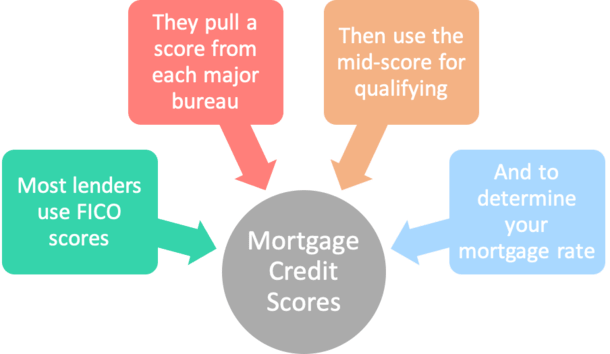Chances are, you've seen commercials boasting the advantages of a reverse mortgage: "Let your home pay you a regular monthly dream retirement income!" Sounds great, ideal? These claims make a reverse mortgage sound almost too excellent to be true for senior house owners. However are they? Let's take a more detailed look. A reverse mortgage is a type of loan that utilizes your house equity to provide the funds for the loan itself.
It's generally a possibility for senior citizens to tap into the equity they've developed over many years of paying their mortgage and turn it into a loan on their own. A reverse home loan works like a routine home loan because you need to apply and get approved for it by a loan provider.
But with a reverse home mortgage, you don't pay on your home's principal like you would with a regular mortgageyou take payments from the equity you have actually built. You see, the bank is lending you back the cash you have actually already paid on your home but charging you interest at the exact same time.

Seems easy enough, right? However here comes the cringeworthy fact: If you pass away prior to you have actually offered your house, those you leave behind are stuck with 2 choices. They can either settle the full reverse home mortgage and all the interest that's piled up throughout the years, or surrender your house to the bank.
Like other types of home mortgages, there are various types of reverse home mortgages. While they all essentially work the exact same method, there are three primary ones to learn about: The most common reverse mortgage is the House Equity Conversion Mortgage (HECM). HECMs were produced in 1988 to help older Americans make ends satisfy by enabling them to use the equity of their houses without needing to leave.
Why Do Banks Sell Mortgages To Fannie Mae for Beginners
Some folks will utilize it to pay for costs, vacations, home renovations or perhaps to settle the remaining quantity on their routine mortgagewhich is nuts! And the repercussions can be huge. HECM loans are continued a tight leash by the Federal Housing Administration (FHA.) They do not want you to default on your home mortgage, so since of that, you will not get approved for a reverse mortgage if your house deserves more than a particular quantity.1 And if you do certify for an HECM, you'll pay a large home mortgage insurance coverage premium that protects the lending institution (not you) versus any losses - how do adjustable rate mortgages work.
They're used up from privately owned or operated companies. And since they're not managed or guaranteed by the federal government, they can draw homeowners in with guarantees of higher loan amountsbut with the catch of much greater rates of interest than those federally guaranteed reverse home https://chanceyseu872.tumblr.com/post/636057814110011392/how-to-reverse-mortgages-work-if-your-house-burns espn radio in my area loans. They'll even offer reverse home mortgages that enable house owners to borrow more of their equity or include houses that surpass the federal maximum amount.
A single-purpose reverse home loan is used by government agencies at the state and local level, and by nonprofit groups too. It's a kind of reverse home loan that puts guidelines and limitations on how you can use the cash from the loan. (So you can't spend it on an expensive getaway!) Typically, single-purpose reverse mortgages can only be used to make residential or commercial property tax payments or spend for home repair work.
The important things to bear in mind is that the lending institution needs to authorize how the cash will be utilized prior to the loan is offered the OKAY. These loans aren't federally guaranteed either, so lenders don't need to charge home loan insurance premiums. However cancel my timeshare contract since the cash from a single-purpose reverse mortgage has to be utilized in a specific way, they're usually much smaller sized in their amount than HECM loans or proprietary reverse home loans.

Own a paid-off (or at least considerably paid-down) home. Have this home as your main house. Owe absolutely no federal debts. Have the cash flow to continue paying real estate tax, HOA charges, insurance, maintenance and other house expenditures. And it's not just you that has to qualifyyour home likewise needs to fulfill specific requirements.
How Many Types Of Reverse Mortgages Are There - An Overview
The HECM program also allows reverse mortgages on condos authorized by the Department of Housing and Urban Development. Prior to you go and sign the papers on a reverse home loan, take a look at these 4 significant drawbacks: You might be thinking about getting a reverse mortgage due to the fact that you feel confident borrowing against your home.
Let's simplify like this: Think of having $100 in the bank, but when you go to withdraw that $100 in cash, the bank just gives you $60and they charge you interest on that $60 from the $40 they keep. If you wouldn't take that "deal" from the bank, why on earth would you desire to do it with your home you've spent years paying a mortgage on? But that's exactly what a reverse home loan does.
Why? Due to the fact that there are fees to pay, which leads us to our next point. Reverse home loans are filled with additional costs. And most customers choose to pay these costs with the loan they will getinstead of paying them out of pocket. The important things is, this costs you more in the long run! Lenders can charge up to 2% of a house's worth in an paid up front.
So on a $200,000 house, that's a $1,000 annual cost after you have actually paid $4,000 upfront naturally!$14 on a reverse home loan resemble those for a regular home loan and consist of things like home appraisals, credit checks and processing costs. So prior to you know it, you've drawn out thousands from your reverse home mortgage before you even see the first penny! And given that a reverse mortgage is only letting you tap into a portion the worth of your house anyway, what happens as soon as you reach that limit? The cash stops.
So the quantity of cash you owe goes up every year, monthly and every day till the loan is settled. The marketers promoting reverse home mortgages like to spin the old line: "You will never ever owe more than your home deserves!" However that's not exactly real since of those high interest rates.
Get This Report about What Are Interest Rates Today On Mortgages
Let's say you live up until you're 87. When you pass away, your estate owes $338,635 on your $200,000 house. So rather of having a paid-for home to pass on to your enjoyed ones after you're gone, they'll be stuck to a $238,635 bill. Possibilities are they'll have to sell the home in order to settle the loan's balance with the bank if they can't pay for to pay it.
If you're investing more than 25% of your earnings on taxes, HOA fees, and family costs, that suggests you're house bad. Reach out to among our Backed Local Providers and they'll assist you navigate your options. If a reverse home loan lender informs you, "You won't lose your house," they're not being straight with you.
Think about the reasons you were considering getting a reverse home loan in the very first location: Your spending plan is too tight, you can't manage your everyday expenses, and you don't have anywhere else to turn for some extra cash. All of an unexpected, you have actually drawn that last reverse home mortgage payment, and after that the next tax expense occurs.